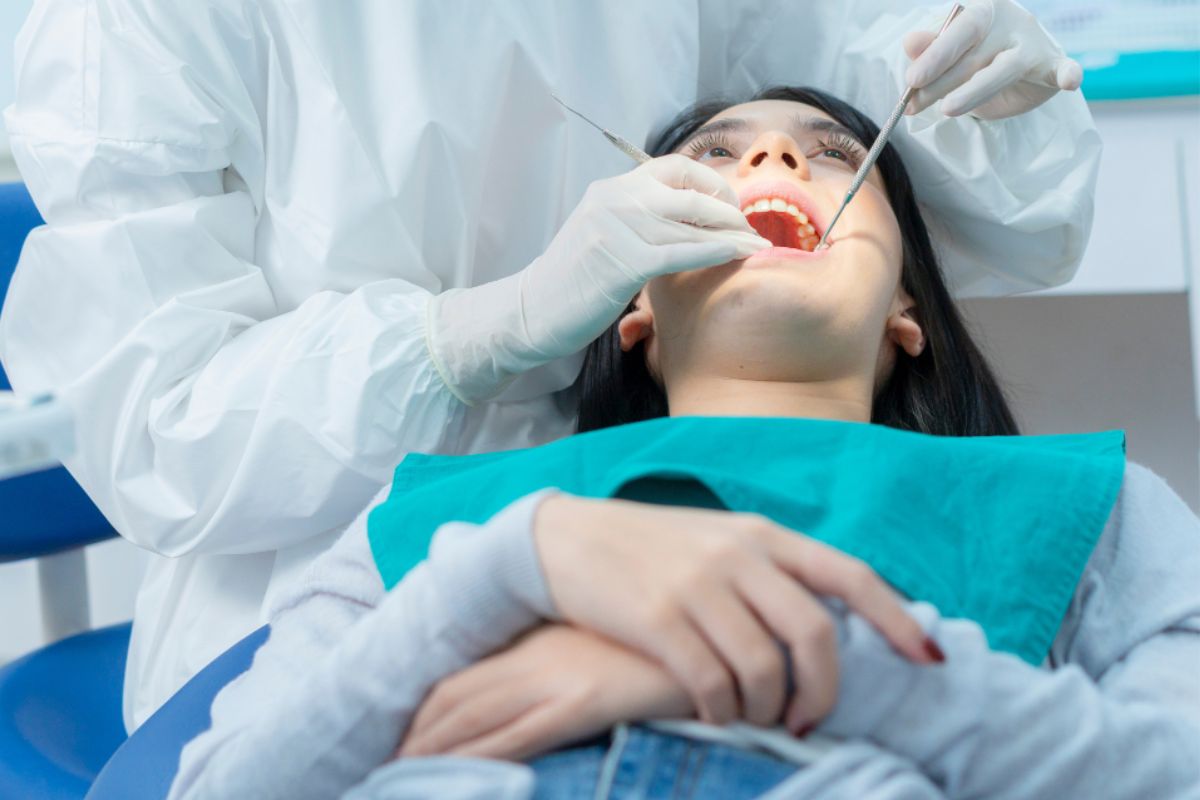Evening Hour Appointments For New Patients!

Dental emergencies can happen at any time. Whether it’s a sudden toothache or a knocked-out tooth, knowing what to do can save you from pain and further complications. Quick action can also improve the chances of successful treatment. Here’s a guide to common dental emergencies and how to handle them.
1. Severe Toothache
A toothache can be caused by cavities, infections, or gum problems. It often starts suddenly and can be unbearable.
What to Do:
- Rinse your mouth with warm water to clean the area.
- Use dental floss to remove any food stuck between teeth.
- Apply a cold compress on your cheek to reduce swelling.
- Take a pain reliever if needed, but avoid placing aspirin directly on the tooth.
- Visit a dentist as soon as possible.
2. Knocked-Out Tooth
Losing a tooth due to an accident can be stressful. However, acting fast can help save the tooth.
What to Do:
- Pick up the tooth by the crown (top part), not the root.
- Rinse it with water, but do not scrub or remove any tissue attached.
- Try to place the tooth back in its socket gently.
- If that’s not possible, store it in milk or saliva.
- Get to a dentist within 30 minutes for the best chance of saving it.
3. Chipped or Broken Tooth
A broken tooth can be painful and may expose the nerves. This can lead to sensitivity or infection and you will need emergency dental care.
What to Do:
- Rinse your mouth with warm water.
- Apply a cold compress on your cheek to reduce swelling.
- If there is bleeding, apply gentle pressure with a clean cloth.
- Save any broken pieces and take them to your dentist.
- Avoid chewing on the affected side until you see a dentist.
4. Loose or Dislodged Tooth
A tooth can become loose due to an injury or accident. If not treated quickly, it may fall out.
What to Do:
- Try to push the tooth back into its original position using gentle pressure.
- Avoid chewing on that side of your mouth.
- Apply a cold compress to reduce swelling.
- See a dentist immediately to prevent permanent tooth loss.
5. Lost Filling or Crown
Fillings and crowns protect teeth from damage. If they come off, the tooth may become sensitive or painful.
What to Do:
- Keep the crown or filling if possible.
- Apply clove oil to the tooth for pain relief.
- Use dental cement or sugar-free gum to cover the exposed area temporarily.
- Avoid eating hard or sticky foods until you see a dentist.
- Visit a dentist as soon as possible to fix the issue.
6. Bleeding Gums
Bleeding gums can be a sign of gum disease, injury, or irritation from brushing too hard.
What to Do:
- Rinse with warm salt water to clean the area.
- Use a soft-bristled toothbrush to avoid irritation.
- Apply a cold compress if swelling is present.
- If bleeding is severe or lasts more than 10 minutes, seek dental help.
7. Abscessed Tooth
A dental abscess is a serious infection that can spread if untreated. It often causes severe pain and swelling.
What to Do:
- Rinse your mouth with warm salt water several times a day.
- Apply a cold compress to reduce swelling.
- Take a pain reliever if needed.
- Avoid chewing on the affected side.
- Seek emergency dental care immediately.
8. Broken Braces or Wires
Braces can break or poke into the cheeks, causing discomfort or injury.
What to Do:
- If a wire is sticking out, try to push it back with a pencil eraser.
- Cover sharp ends with orthodontic wax, cotton, or sugar-free gum.
- Avoid cutting the wire, as it may be swallowed accidentally.
- Visit your orthodontist as soon as possible.
9. Soft Tissue Injuries
Lips, gums, tongue, and inner cheeks can get injured due to accidents or biting down too hard.
What to Do:
- Rinse your mouth with warm salt water to clean the area.
- Apply gentle pressure with a clean cloth to stop the bleeding.
- Use a cold compress to reduce swelling.
- If bleeding continues for more than 15 minutes, seek emergency care.
10. Jaw Injury or Fracture
A broken or dislocated jaw can be very painful and requires urgent medical attention.
What to Do:
- Keep your jaw still by using a cloth or bandage to stabilize it.
- Apply a cold compress to reduce swelling.
- Avoid moving your mouth too much
- Get medical help immediately.
Preventing Dental Emergencies
While accidents happen, many dental emergencies can be avoided. Taking care of your teeth and gums can help prevent problems before they start.
Tips for Prevention:
- Brush and floss daily to maintain healthy teeth and gums.
- Wear a mouthguard when playing contact sports
- Avoid chewing on hard objects like ice, pens, or fingernails.
- Visit your dentist regularly for check-ups and cleanings.
- Address minor dental issues before they turn into emergencies.
When to See a Dentist?
Not all dental problems require immediate attention, but some do. If you experience severe pain, bleeding, swelling, or lost teeth, don’t wait. Seeking timely treatment can prevent further complications.
Knowing how to handle common dental emergencies can make a huge difference. Quick action can save a tooth, reduce pain, and prevent infections. If you ever face a dental emergency, follow these steps and see a dentist as soon as possible.




